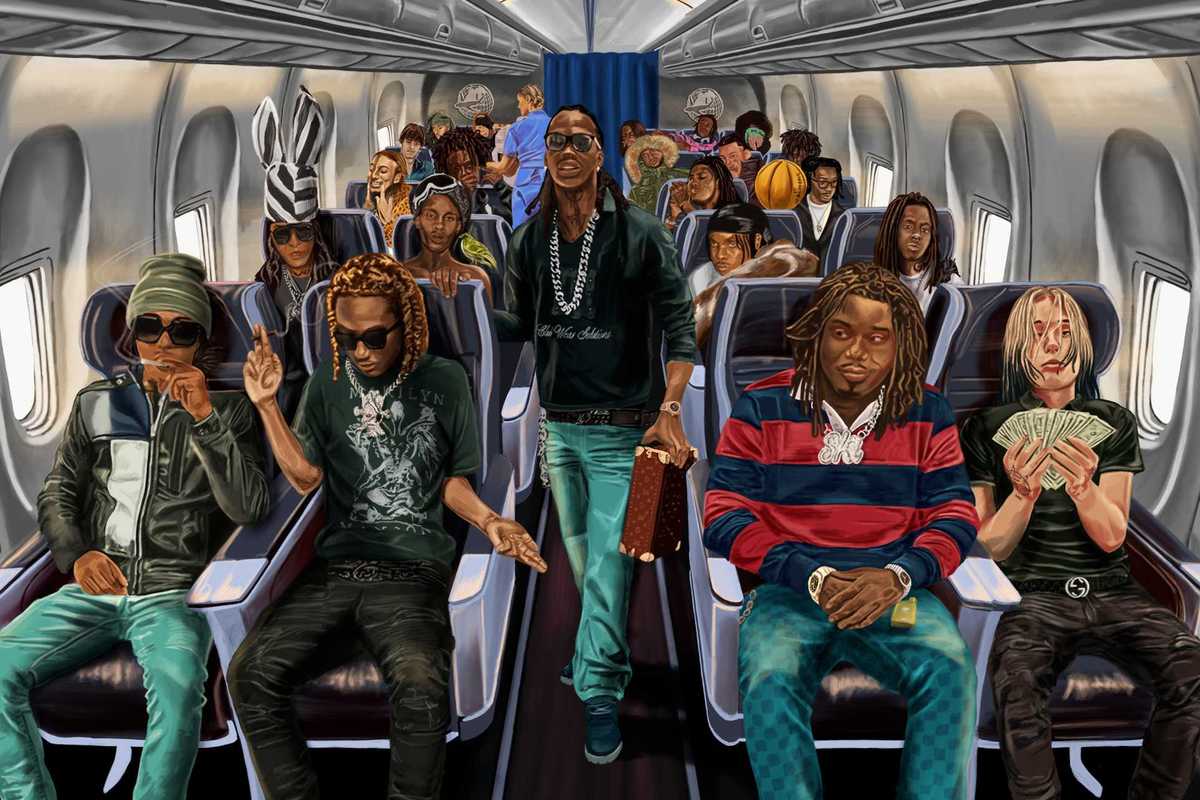Industry Leaders Talk What's Next for Punjabi and African Music in Canada at Canadian Music Week
Panels at CMW 2024 put the spotlight on non-Western music movements that are seeing major growth in Canadian and American markets, with experts from companies like Live Nation and Warner Music providing insight on how to sustain the momentum.

Baldeep Randhawa of Live Nation at Canadian Music Week 2024
Industry leaders supporting the rapid growth of Punjabi music in North America and beyond are looking ahead to what’s next, and what’s needed to make the moment last. They're taking a lead from the simultaneous growth of African music in the Canadian market. Both took the spotlight at Canadian Music Week (CMW) 2024.
Punjabi music experts Baldeep Randhawa of Live Nation, Charlie B of Warner Music Canada and Jashima Wadehra of Ode Consulting, took the stage on the third day of CMW's summit for an in-depth conversation about the present and future of Punjabi music, the fastest-growing music language in the country.
Punjabi artists are selling out North American tours, winning Junos and landing on the Canadian charts — but, the panelists emphasized, it wasn’t always clear this Punjabi Wave moment would come.
Charlie B, who's the Director of A&R at Warner Music Canada and has previously focused on hip-hop and R&B, recalled during the panel when his team came together to ask why Punjabi music wasn’t having its North American crossover moment.
They came to a conclusion: “there was no real infrastructure,” Charlie told the audience at the Westin Harbour Castle in downtown Toronto. That revelation led to the launch of 91 North, a new Punjabi-focused venture from Warner Music Canada and Warner Music India. (Charlie B is on this year's Billboard Canada Power Players.)
Wadehra stressed that the missing crossover moment wasn’t for lack of talent or experience. When filming a documentary about the South Asian artists, including Diljit Dosanjh, who performed at Coachella in 2023, promoter Goldenvoice asked Wadehra if the American festival had amplified their careers.
“I said to them that Diljit and many other artists had played 10K, 20K, 30K person shows before, it’s just that for the first time their music was being given the opportunity to be discovered outside of its language or its region,” she explained. “And that’s a curation issue.”
Now, Randhawa told the crowd, institutions are finally getting behind the Punjabi Wave. “I just see doors opening now. Where for the longest time there was no support, now I’m starting to see support for the artists.”
Promoters who used to tell him no when he pitched South Asian artists are now competing for them.
“Someone asked me, does that annoy you? Absolutely not!” he said. “The goal was to have everybody actually paying attention.”
Charlie pointed to the global rise of Afrobeats and Latin music as examples that the industry and audiences are willing to get behind non-Western genres and non-English language music.
“You have Burna Boy coming here selling out two shows at Scotiabank [Arena],” he said. “I don’t think that would happen five years ago. But that just shows that the world is open.”
'We are really in the spotlight'
Like Punjabi music, African music has seen major growth in the Canadian market. Beyond Burna Boy, artists like Tyla and Rema are taking over the charts, while Canadian Afrobeats artists like TOME are repping the genre at home.
Experts spoke to the major moment for African music at CMW's final conference panel, Beyond Borders: Exploring the Economic and Social Impact of African Music in Canada.
"We are really in the spotlight right now, which wasn't the way it used to be," said artist and promoter Yinka Farade.
PR strategist Fusi Hype agreed, and pointed out a lack of understanding in the Canadian industry when it comes to African approaches, as well as a lack of Black representation in the industry's most powerful positions.
"You have to get the right people in the room, put our people in the right places," he said. "There are no Black people at the top. How do we get our voices in those rooms?"
Ubi Franklin of Made Men Music pointed to the importance of building partnerships between artists and promoters, and developing associations and organizations, so that growth can continue. "The future is bright and the future has started already," he said. "We now have a Nigerian promoters association, which we didn’t have before."
TOME made sure to highlight that the growth isn’t just benefiting artists internationally. With a rise in popularity, opportunities for Canada-based artists such as herself are no longer few and far between.
“We are in a period where Afrobeats and African music is being highlighted and appreciated in a way that we haven't seen,” she explained. "That will also start to change the local landscape for us as well very soon.”
The need for sustainable growth
Both panels focused on the institutions and networks that need to be built so that these booms aren't just a flash in the pan.
For Wadehra, the next frontier in Punjabi music is adding more jobs in the industry, so that artists can have larger teams and back-and-forth reciprocity with labels and promoters.
“What we gain by working with Baldeep and Charlie and legitimized institutions in the West,” she explained, “is the opportunity to retain equity and ownership. When we’re not able to engage in legitimized business in the form of contracts or deals, you’re not able to defend yourself,” she added.
Like Franklin's vision of a bright future for African music, Randhawa sees Punjabi music as continuing to expand in North America. He told the audience that he expects Karan Aujla to be the next Punjabi artist with a Canadian stadium show, following Dosanjh’s historic performance at BC Place in April. (Aujla is already playing arenas on his first Canadian tour.)
He recalled a meaningful moment with Dosanjh at that record-breaking show, when he told the artist: “never did I think someone that looked like us was gonna play this.” And because of that show — which Randhawa worked towards for two years, convincing the venue and Dosanjh himself — now more people will, Dosanjh replied.


















